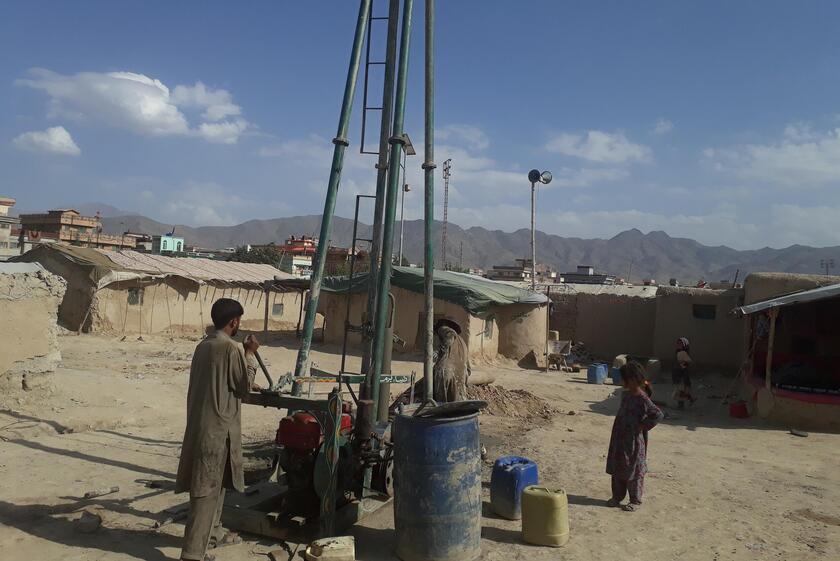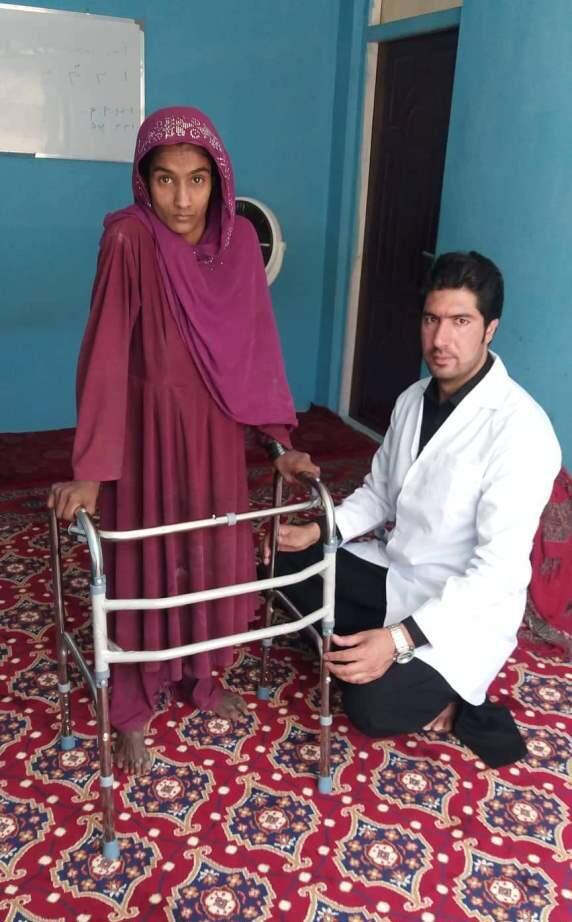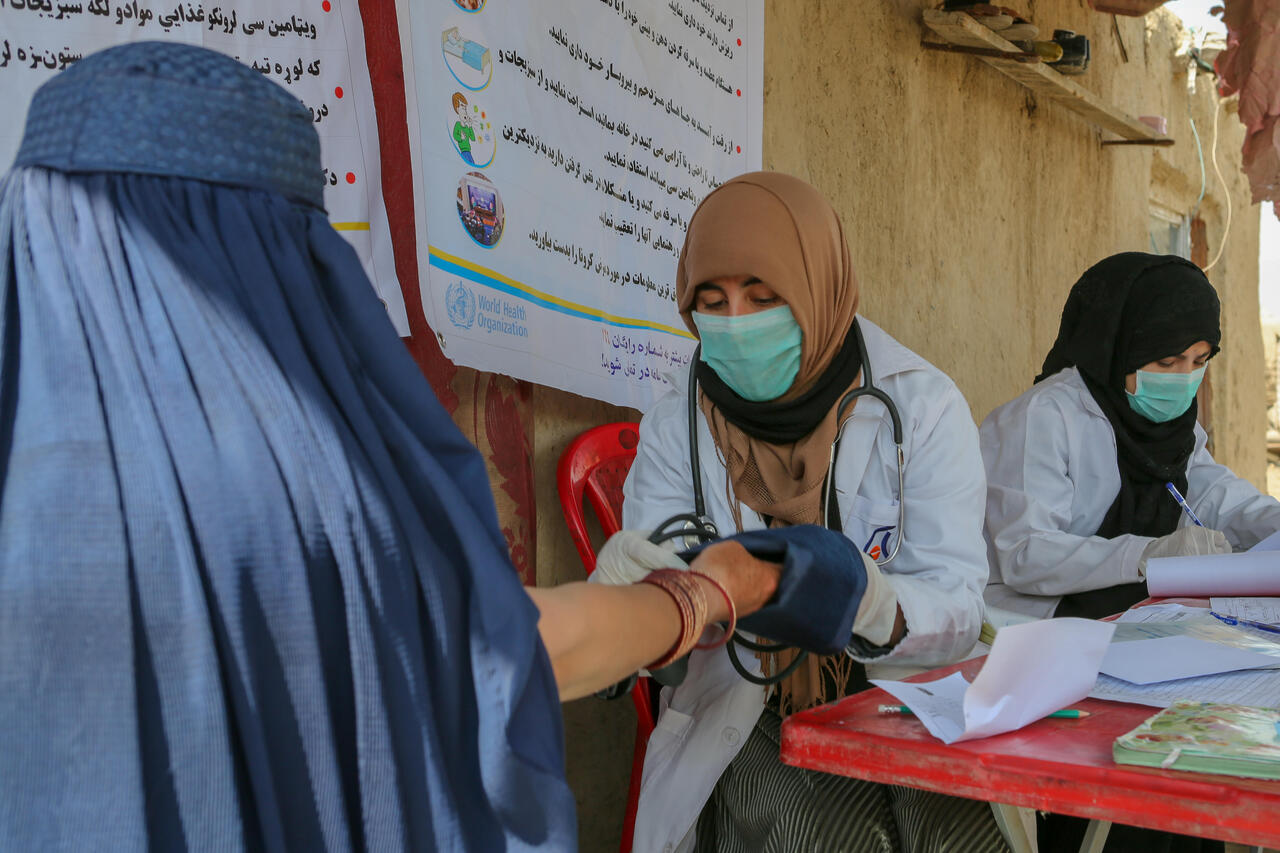Mobile health and clean water for Kabul
Berlin / Kabul, 22 October 2019
The Afghan capital Kabul is the destination of hundreds of thousands of internally displaced persons and returnees fleeing the violence in their own country. The city's population has doubled in just a few years, but the expansion of the infrastructure is nowhere near keeping pace. Thousands of families live in extremely precarious accommodation in informal settlements. Diseases are spreading and hygiene conditions are often catastrophic. Johanniter provides relief.
Long distances, dangerous roads: for many people in the informal settlements of Kabul, health centres are often difficult to reach. Women and children in particular frequently suffer accidents. That is why we support a mobile basic health clinic, which offers its services six days a week at seven different points in the Green Village district. In addition to health, the measure promotes a better quality of life together, as informal refugee settlements are often located in established urban districts. Tensions and lack of acceptance can be reduced by additional services like these.
Together with the local partner organisation Organization of Humanitarian Welfare (OHW), we also provide basic medical care in 21 informal settlements in Kabul. Two stationary and three mobile clinics reach over 5000 families with a total of around 38,000 people.
Wells and water pipes for 16,000 people

But in order to not only treat diseases, but to also prevent them, the causes must be tackled. That is why we are simultaneously working to improve the hygiene situation and access to clean water. Eleven hand pumps and eight deep wells with solar-powered water pumps, including a pipeline system, will ensure the water supply for around 16,000 people in the future, as clean water has been a scarce commodity up to now. Committees are being formed to maintain the pumps and systems in order to ensure that they will function properly in future.
Support for people with disabilities

Hygiene is also improved on an individual level. For example, women receive hygiene utensils and a sewing machine to produce towels, bandages and other necessary materials. People with disabilities, who make up a quarter of the population in the informal settlements, are provided with physiotherapeutic services and aids. Those who need orthoses or prostheses are referred to the Red Cross or Handicap International for support. Through this cooperation and multi-level approach, the situation of thousands of refugees can be improved step by step.
